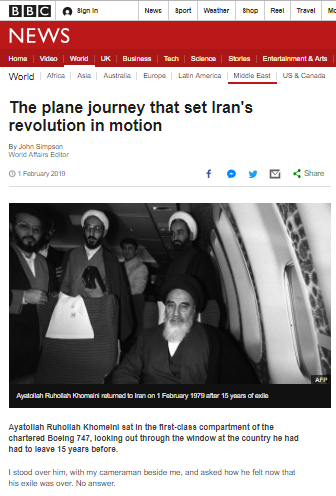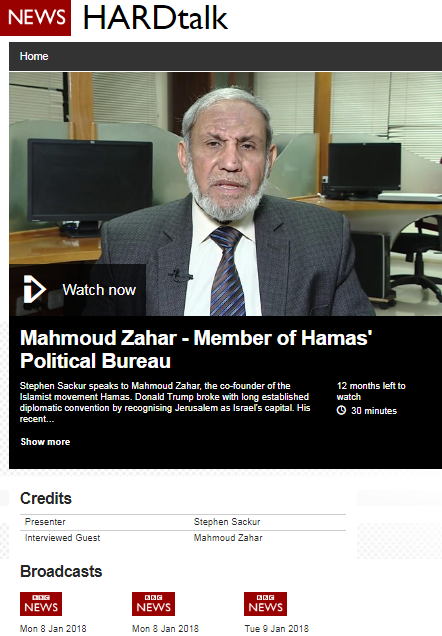An article by the BBC’s world affairs editor John Simpson which appeared in the ‘features’ section of BBC News website’s Middle East page on February 1st 2019 under the title “The plane journey that set Iran’s revolution in motion” told readers that:
“Today, Iran is a lot more easy-going than most outsiders imagine.
The rules about women’s dress are sometimes enforced harshly, but the Islamic Republic has never clamped down on women’s rights in the way you see routinely in Saudi Arabia.
Iranian women run businesses, own property, drive cars and play an important part in politics.
The present government is probably more liberal than any other since the revolution.” [emphasis added]
As was noted here at the time:
“The World Economic Forum publishes an annual ‘Global Gender Gap Report’ which ranks countries in terms of women’s economic participation, educational attainment, health, and political empowerment. The 2018 report put Iran in slot 142 out of 149, with Saudi Arabia one place higher. Despite Simpson’s claim that “Iranian women…play an important part in politics”, the WEF’s sub-index on political empowerment ranks Iran 141 out of 149. Saudi Arabia is ranked 127th. […]
This is by no means the first time that the BBC has whitewashed the specific issue of women’s rights in Iran as well as the general picture of human rights in that country. But this is not some junior reporter dashing off a report: this is the BBC’s highly paid world affairs editor – no less – writing a feature, with time to check facts in order to avoid misleading audiences.”
BBC Watch submitted a complaint concerning that article on February 6th. On February 15th BBC Complaints informed us that it “had referred your complaint to the relevant people and regret that it may take a little longer before we can reply”. On March 6th we received another e-mail from BBC Complaints informing us that – as is all too often the case – “we’ve not been able to reply to your complaint within the time period we aim for”.
On June 17th – over four months after the complaint was originally made – we received an e-mail from the BBC News website.
“Thank you for getting in touch about our feature article entitled The plane journey that set Iran’s revolution in motion (https://www.bbc.com/news/world-middle-east-47043561).
You appear never to have received a response to your complaint, submitted in early February, and we would like to apologise for the long and regrettable delay in writing back to you.
After consider [sic] your points in more detail we have amended this paragraph to now explain that:
Today, Iran appears a lot more easy-going than most outsiders imagine.
The rules about women’s dress are sometimes enforced harshly, but the Islamic Republic has never clamped down on women’s freedom of movement in the way you see routinely in Saudi Arabia with its male guardianship system.
In my experience, Iranian women have more belief that they can run businesses, own property, drive cars- and play an important part in politics, despite figures to the contrary.
We have also added a note of clarification at the bottom of the article outlining these changes.”
That footnote reads:

The BBC claims that: [emphasis added]
“We aim to deal with your complaint fairly, quickly and satisfactorily. We are required by our Royal Charter to have a complaints framework which provides “transparent, accessible, effective, timely and proportionate methods” of making sure we are meeting our obligations and fixing problems.”
And:
“If you complain in writing we post or email over 90% of our replies within 2 weeks.”
In April 2018 the BBC once again renewed its contract with the private company to which it outsources the first two stages of its complaints system.
Obviously a complaints system which takes over four months to come up with a response is neither “timely” nor “effective” and the continued absence of a corrections page on the BBC News website of course means that audience members who read Simpson’s article when it was first published remain unaware of the changes made to it.
Related Articles:
BBC World Affairs editor misleads on women’s rights in Iran
How the BBC outsources its complaints system




